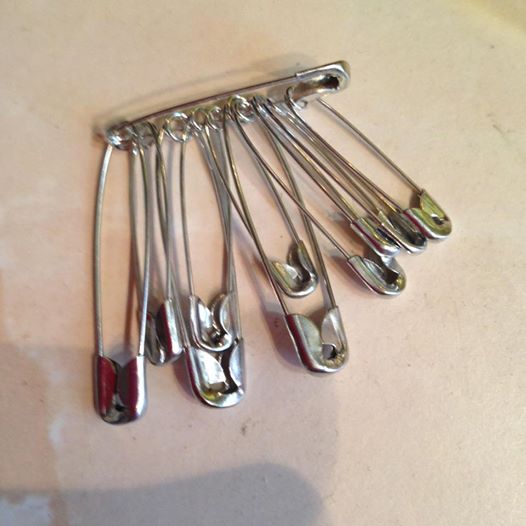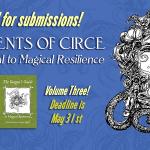Guest post by John Macintyre
Dear Friends,
The debate over UK membership of the European Union is drawing towards an end, or more likely to a very short interval. We vote on Thursday. It’s been a short and thoroughly depressing campaign in which the main issues seem to have been money, paranoia and xenophobia. An energetic, capable and downright admirable young MP, Labour’s Jo Cox, has just been murdered in what appears to be a politically motivated killing. I’d like to hope things can’t get any worse but that would seem to be tempting fate.
Though I don’t belong to any political party, I’ve always been interested in politics, hence these thoughts on the matter. Polling just now is hard to interpret in detail because the methodologies keep changing but the direction over the last few weeks looks consistent. If accurate and sustained it looks as though, across the four countries of the UK, Scotland and Northern Ireland will vote to Remain in the EU while England and Wales vote to Leave.
I’m strongly in favour of all the countries of the UK remaining in the EU. I respect the fact that some folk feel differently. I know there are good people on both sides for I’ve a lot of friends who’ll be voting Remain and a few who’ll be voting Leave. My feelings towards the leaderships of both the official UK Remain and Leave campaigns are, I confess, somewhat less open-hearted than that.
![Harebells (the "Bluebells of Scotland"), by Chilepine (Own work) [Public domain], via Wikimedia Commons](https://wp-media.patheos.com/blogs/sites/311/2016/06/Harebells1-300x225.jpg)
The North Sea has always connected people far more than it divided them, and the marks of these connections to the rest of Europe are everywhere in Scotland’s history, language, culture, place names, educational system, architecture and law. As I sit typing this, I know that a few miles walk in one direction would bring me to the remains of the old Dane’s Dyke. A few miles the other way and I’d be where the first translation into any of the English family of languages of one of the foundational works of European literature, Gavin Douglas’s 16th Century Scots translation of Virgil’s Aeneid, was written.
Long before we were diverted into the British Empire (an enterprise we were at least as guilty of as England, and arguably more so), the Scottish Diaspora spread out across Scandinavia, Ireland, the Low Countries, France, Germany, Poland, the Baltic States, Russia and virtually everywhere else on this continent that an energetic, well-educated and not particularly scrupulous people could find an easier living. We have very deep, historical connections to the rest of Europe that are of even longer standing than our close, friendly ties to England and Wales. If you want to wax mythopoeic about it, and I’m prone to that even without drink taken, then for all our wonderfully diverse nations and cultures across this continent, and wherever we came from to end up here, and however tangled the skein of heritage, co-option, bastardy or adoption that holds us here, and with the greatest familial respect to all the many other parents we may rightly honour, we are all of us the children of Europa and Zeus. I think that matters.
As with any political campaign, Leave and Remain have been busily drawing up lists of prominent supporters to endorse their claims. I couldn’t care less about them because there are other lists of names that matter a great deal more to me, and I’m sure to many others. I’m a child of the 1950s & 60s. I remember the annual Remembrance parades at the Kirk gates, and the long lists of names on those gates. Names of all those from this one small Scottish village that died in the two Great Wars with Germany, and the same everywhere else across this island and beyond. We can now travel freely across Europe, working, studying, exploring, forging friendships and falling in love. Our young people embrace this even more enthusiastically than we do. These freedoms are not only good in themselves, they are a very real security in an increasingly fragile world.
It would be wrong to say that the European Union alone has kept the peace in Western and Central Europe since 1945, for there have been many other convergent factors contributing to that. But the EU has certainly been one of the major factors in maintaining peace and for that reason alone it is worth supporting. I do not think there has ever been a period of peace for as long as seventy years here before, and it is surely a welcome change. Given the bloody, fratricidal mess of our collective histories, it seems only common sense for all the sovereign, independent, states of Europe to pool some of their sovereignty in strengthening joint economic, political and environmental strategies, developing some shared educational, cultural, scientific and legal institutions, extending basic reciprocal rights to each others citizens, and generally deepening social ties. The EU has many faults but it is the closest Europe has come to this yet, and I hope and pray this beloved Scotland will become part it in our own right some day.
It would be understandable if many of us here in Scotland thought the EU referendum had little to do with us. In a country where every significant politician in every significant political party, all the trade unions, civic institutions and third sector bodies, all the universities and most business interests have lined up solidly behind Remain, and polling suggests most of us will too, it would be easy to grow complacent. I don’t think we should be at all complacent.
Over recent weeks, some leading figures in the Leave campaign – notably Michael Gove – have begun hinting that Brexit would mean more powers for the Scottish Parliament. This seems wildly implausible. The Leave campaign is led by politicians who campaigned against the restoration of the Scottish Parliament and have relentlessly sought to undermine and minimise its role ever since. They also fought tooth and nail against the increased powers negotiated in the aftermath of the 2014 referendum. If we vote to leave, we are granting them even more power than they have already and it would be astonishing if they suddenly decided to use it for our benefit.
These people believe unquestioningly in the absolute sovereignty of the Westminster Parliament. They are opposed to the EU for exactly the same reason they are opposed to any recognition of Scotland as a semi-autonomous country within the UK, and that’s because both the EU and our Parliament potentially challenge the sovereignty of the Crown in the Westminster Parliament.
A slightly more contentious way of saying the same thing would be that they see both the EU and the Scottish Parliament as an outrageously impertinent restriction on the right of themselves and their class to rule all the countries of the UK as they see fit and in their interest. I strongly suspect that if they win a majority in the referendum, both the Scottish Parliament and the Welsh Assembly are likely to be high on their list of follow-on targets.
I didn’t mention the Northern Irish Assembly there and there’s a reason for that. If the UK withdraws from the EU, that has very serious implications for Northern Ireland where the relative peace and stability following the 1998 Good Friday Agreement is underpinned by common EU membership on both sides of the border. The politicians who lead the Leave campaign may not care about that but we should.
I know that some comrades from the 2014 Yes Campaign are still angry with the EU for its, and particularly for the EU Commissions’, support for “Project Fear” in the run up to our 2014 referendum. Please let that go. It was merely another aspect of the political knockabout that saw David Cameron begging just about every “world leader” from Barack Obama and Vladimir Putin downwards to speak out against Scottish Independence. As circumstances change, so do political opinions and the next few months are likely to be no exception.
If, as polling currently suggests (see previous caveats), Scotland and Northern Ireland vote to Remain in the EU but England and Wales vote for Leave, with the overall UK vote being for leave, that will create a very difficult situation. I hope this doesn’t happen because as several Scottish politicians have pointed out, the aftermath of a potentially very serious mistake by the countries that are our nearest neighbours and best friends would be a challenging time for us to be trying to negotiate for our own security and international relationships.
I don’t see another Scottish independence referendum happening any time soon in those circumstances. The Independence movement wouldn’t really want one because we couldn’t be sure we’d win. The polls haven’t moved significantly since 2014 and it’s probably going to take a lot more time to move them. The Unionist movement wouldn’t really want one either because they couldn’t be sure they wouldn’t lose. We did after all cut their initial 35% lead to 10% in 2014. The Long Game offers other possibilities.
Despite the impression given by the gutter press, the EU is pretty flexible when it feels it needs to be. Our Danish neighbours are a sovereign member state within the EU; yet Greenland and the Faeroe Islands, both of which are part of the sovereign Kingdom of Denmark, are not part of the EU and the sky hasn’t fallen, nor do hard borders cut across Danish territory. If Scotland votes strongly for Remain, then even if England votes to leave – and I truly hope they don’t – that would certainly strengthen the hand of the Scottish Government and Parliament in trying to negotiate with both the UK and the EU to organise some kind of “Reverse Danish Faroes-Greenland” arrangement under which Scotland (and probably Northern Ireland) remained in the EU while still under UK sovereignty. I rather suspect that significant English interests both economic and social/internationalist would see such an arrangement as very much in their interest, though far from their – or our – first choice.
One crucial difference between this referendum and the Scottish one is that in 2014, each side put forward a plan. The No side predictably wanted no change. For the Yes side, the Scottish Government put forward an outline (with strong confederal elements) of what domestic and international objectives it would aim to negotiate for in the aftermath of an independence vote. Each side had both a declared strategy for the future and a government capable of seeking to implement it if their side won. In stark contrast today, while the official Remain side may only have a rather insipid vision of the status quo, the Leave side has put forward no coherent, or even incoherent, plan for what it intends to do if it wins the referendum beyond a rather complacent assumption that on leaving the EU, all existing economic agreements will be rapidly renegotiated on more favorable terms for the UK and immigration will be cut to a fraction of its current level without any retaliatory expulsion of UK immigrants in other countries, nor is it at all clear what the composition of the UK government trying to negotiate all this would be.
If you’re concerned about immigration, ask yourself this. Slightly over half of present immigration into the UK comes from outside the EU. Successive UK Governments have always had the sovereign right to further restrict that if they wish. If they haven’t done so when they’ve always had the power to do so inside the EU, why do you think they’d choose to do so outside the EU?
If you’re concerned about the Scottish Fisheries within the EU CFP, please bear in mind that it was Margaret Thatcher’s UK Government that traded away potential Scottish fish quotas under the Common Fisheries Policy in exchange for other concessions that were of greater benefit to her party’s supporters. As with many other controversies surrounding EU membership, what many people blame the EU for turns out to have as much or more to do with the decisions of successive UK governments as it does with any EU institutions.
The European Union is not less democratic than the UK, and that is not intended as a compliment to either. Yes, there are legitimate issues with the EU Commission and some other aspects of the EU. To set against that, more than two thirds of UK voters voted against the party that won the UK general election last year yet it still gained an overall majority in the House of Commons and, barring internal dissent, can force through any measures it likes over this parliamentary term. The majority of Westminster politicians are members of the still-expanding House of Lords who are not elected by anyone. They are chosen through Establishment patronage, aristocratic birth or religious privilege, and while many are decent and capable individuals just as many HoC MPs are, their actual influence goes far beyond advice and revision. The House of Lords, the lack of proportional representation, the shadowy influence of the Crown in Parliament, and numerous other dubious practices make the UK ill placed to lecture the EU on its “democratic deficit”.
The politicians who run the EU are neither better nor worse than those who run the UK, and please remember that we contribute to electing both sets of them. With the UK in the EU, tensions between the two create opportunities for progressive movements to protect gains that have already been made and even to edge forward sometimes. Please remember that if Brexit wins on Thursday, then it will be an in-house revision of the present Conservative government that will have greatest immediate influence on how the UK adjusts to that. If you think Boris Johnson, Iain Duncan Smith and Michael Gove are the harbingers of a fairer, more egalitarian, compassionate, inclusive, prosperous and environmentally responsible society then I do have to respectfully ask how you can possibly have arrived at that conclusion.
John Macintyre is a Scottish Pagan with an interest in history & politics. He is a former President of both the Pagan Federation England & Wales and of the Scottish Pagan Federation, currently in his second term of the latter. He has previously featured in an interview on this blog.
















